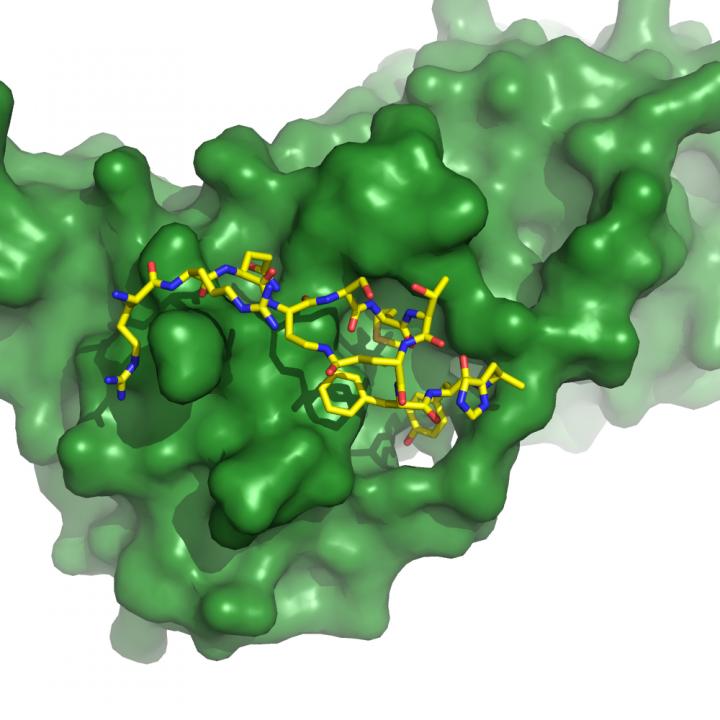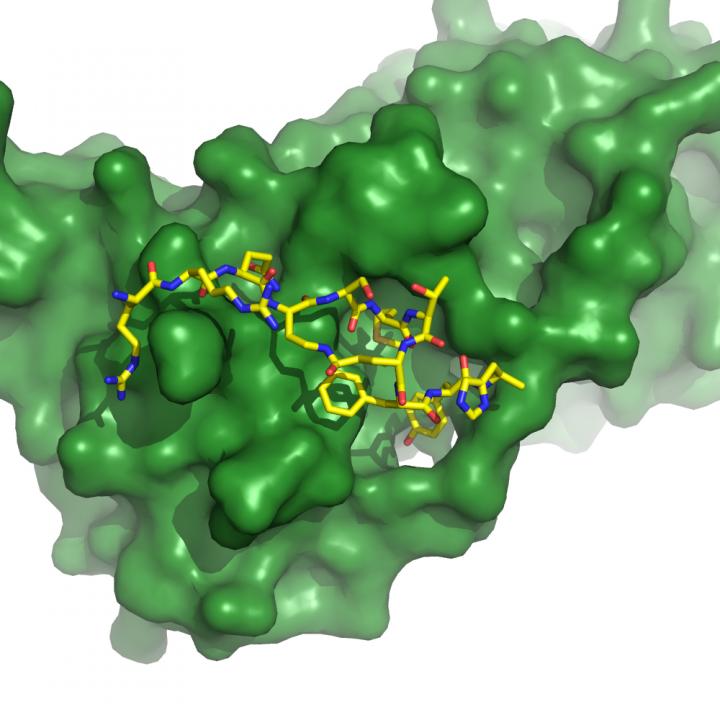
Credit: University of Adelaide
A new molecule designed by University of Adelaide researchers shows great promise for future treatment of many cancers.
The new molecule successfully targets a protein that plays a major role in the growth of most cancers. This protein target is called proliferating cell nuclear antigen (PCNA), otherwise known as the human sliding clamp.
"PCNA is required for DNA replication and is therefore essential for rapidly dividing cancer cells," says project leader Dr John Bruning, Senior Research Fellow at the University's Institute for Photonics and Advanced Sensing (IPAS).
"PCNA holds the machinery that copies DNA. The DNA slides through the centre of this donut-shaped protein where it is replicated.
"If we can inhibit the action of this protein, the cells can't make DNA, so they can't divide. This is really tackling cancer at ground zero. It's stopping cell division and therefore tackling cancer at its most fundamental level.
"We also know that PCNA is 'overexpressed' – or makes too many copies – in 90% of all cancers. That means it is a potential target for inhibiting the growth of multiple cancers, not just a select few.
"And importantly, this protein seldom mutates which means that it is less likely to develop resistance against a drug inhibitor."
The research, in collaboration with the University of Wollongong, has been published in Chemistry, A European Journal.
The multi-disciplinary team at IPAS designed a molecule that can interact with PCNA, offering a promising new strategy for the design of a PCNA inhibiting anti?cancer treatment.
"In this study, we have taken a protein fragment that naturally interacts with PCNA and transformed it using smart chemistry into a drug-like molecule," says lead author Dr Kate Wegener, Ramsay Postdoctoral Research Fellow in the University of Adelaide's School of Biological Sciences.
"We've changed its chemistry to protect it from degrading like the natural protein, and so that it works better."
The new molecule shows increased potency over other PCNA inhibitors, and is likely to show less side-effects.
"Because of the special approach we have used in turning a natural protein into a drug-like molecule, it fixes to PCNA more readily and its action is specific to this protein," says Dr Bruning.
"This is a first. It's the first in this type of inhibitor and it will pave the way for a new class of drugs inhibiting the proliferation of cancerous cells."
###
Media Contact:
Dr John Bruning, Senior Research Fellow, Institute for Photonics and Advanced Sensing, University of Adelaide. Phone: +61 8 8313 5218, Mobile: +61 (0)424 446 070, [email protected]
Robyn Mills, Media Officer, Phone: +61 (0)8 8313 6341, Mobile: +61 (0)410 689 084, [email protected]
Media Contact
Dr John Bruning
[email protected]
61-042-444-6070
@UniofAdelaide
http://www.adelaide.edu.au
Related Journal Article
http://dx.doi.org/10.1002/chem.201801734





